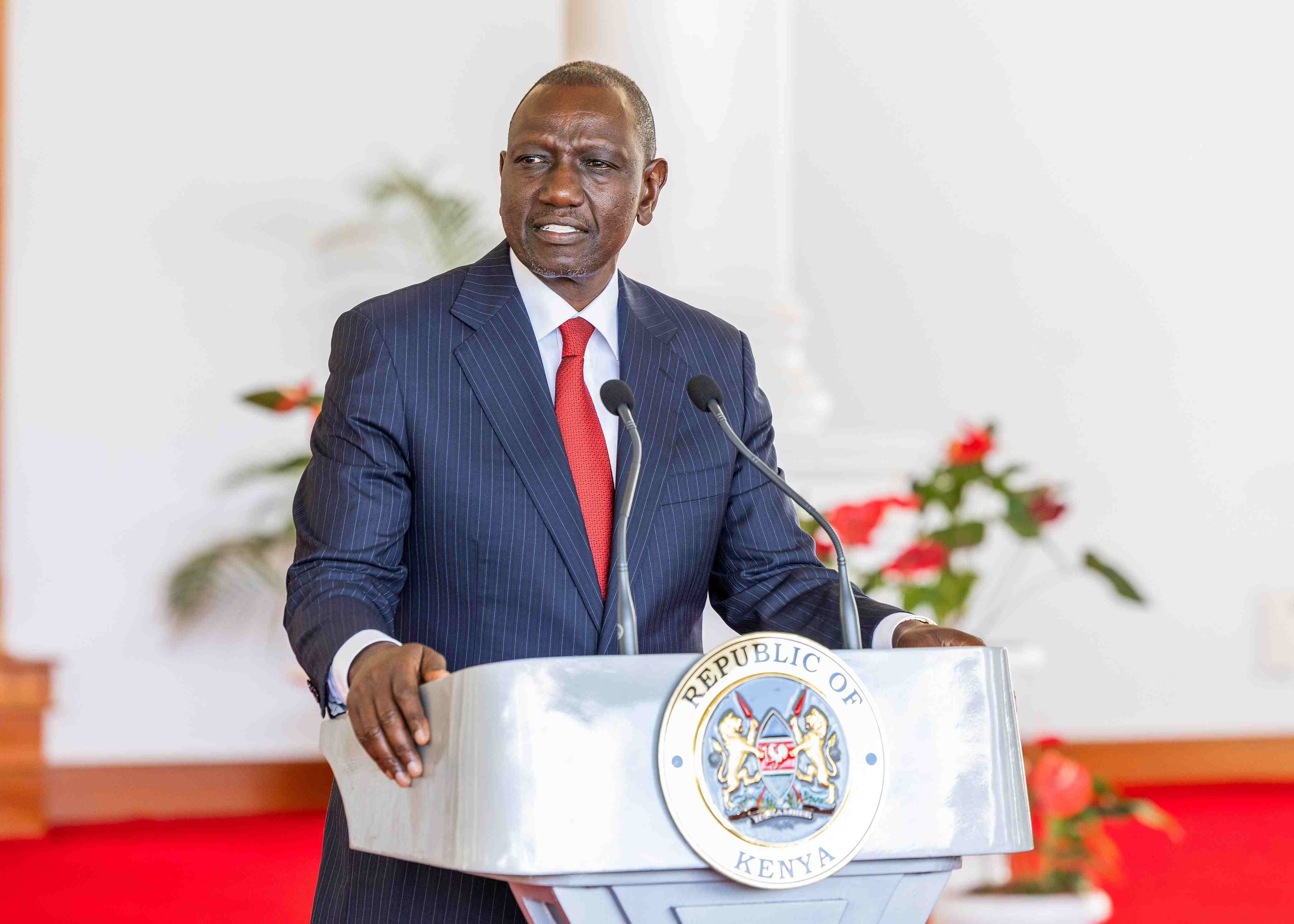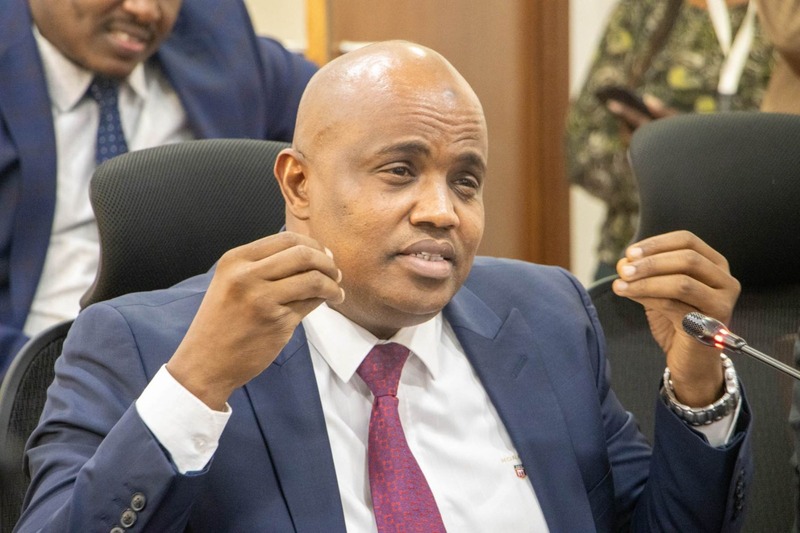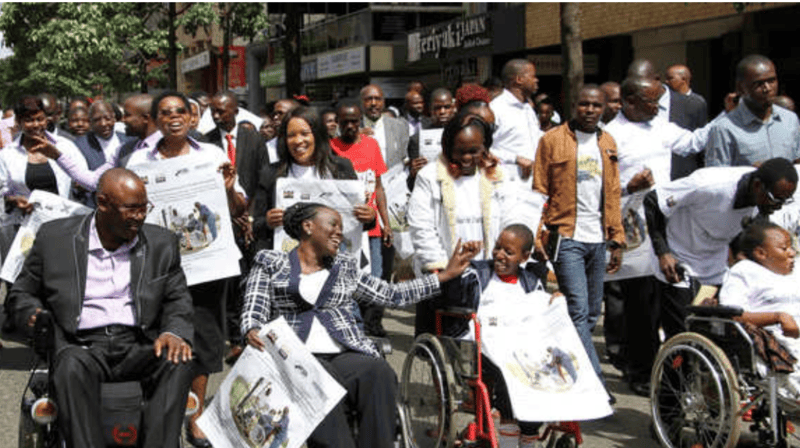Senators raise alarm over President William Ruto’s Sh23.5 billion industrial parks project

The Sh23.5 billion programme, launched with the promise of spurring industrial growth and creating jobs in all 47 counties, has drawn sharp criticism for its top-down implementation, design flaws and exclusion of key stakeholders.
A multibillion-shilling initiative by President William Ruto to establish County Aggregation and Industrial Parks (CAIPs) across the country is under fire from senators and governors who say it risks becoming another failed state project.
The Sh23.5 billion programme, launched with the promise of spurring industrial growth and creating jobs in all 47 counties, has drawn sharp criticism for its top-down implementation, design flaws and exclusion of key stakeholders.
More To Read
- How Trump–Ruto health deal fills the void left after USAID exit
- Drama at Beryl Odinga’s burial in Bondo as Ida confronts rowdy youth
- UNAIDS hails Kenya–US health framework as major boost for HIV response
- Kenya, US sign Sh208 billion health cooperation deal to transform to strengthen primary care, services
- Ruto backs IMF partnership as key to Kenya’s debt, economic reforms
- Tough decisions stabilised the economy, saved Kenya from shame – Ruto
Senators and county chiefs are raising the alarm over stalled works, underutilised infrastructure and dwindling budget allocations.
Siaya Governor James Orengo, appearing before the Senate County Public Accounts Committee, said counties were sidelined throughout the planning process, with national officials making all the decisions, including contractor appointments, without involving the devolved units or private sector players.
“The project was doomed from the start. We’ve been left with warehouses no one wants,” Orengo told the committee chaired by Homa Bay Senator Moses Kajwang’.
According to Orengo, the national government required each county to contribute Sh250 million towards the parks, yet counties were not consulted on design, feasibility or investor needs.
He noted that Siaya had already spent Sh123 million of its funds, while only receiving Sh53 million from the national government.
“Had I been given Sh300 million to develop a cotton ginnery tailored to Siaya’s needs, we’d have real value. Now, we’re left building warehouses and asking investors to buy into a flawed idea,” Orengo said.
In the current financial year, only Sh1 billion of the Sh2 billion CAIP budget has been disbursed, following a trend of underfunding. In the previous year, Sh1.15 billion was released against a Sh4.5 billion allocation.
Nairobi Senator Edwin Sifuna strongly criticised the programme, describing it as a financial scheme designed to benefit contractors at the expense of citizens.
“There is no value for the people of Siaya. The value is for those making money from the construction. This is a scam like the affordable housing programme. The intention was never to benefit citizens. It’s about feeding someone’s stomach,” he said.
Sifuna claimed Makueni Governor Mutula Kilonzo Jr was also excluded from project planning, with blueprints and dimensions sent from Nairobi without any local consultation.
Taita Taveta Senator Johnes Mwaruma questioned the rationale behind building aggregation parks in areas without sufficient agricultural output. “Shouldn’t we ensure agricultural production first?” he asked.
Nyamira Senator Okong’o Omogeni sought clarity on whether the project was imposed on counties, to which Orengo confirmed that national government officials bypassed standard county procurement processes and directly executed the work.
Nandi Senator Samson Cherargei asked whether a legal framework existed for the partnership between the two levels of government.
Orengo explained that the national government used a one-size-fits-all model that ignored local realities, and that most counties would rather have used the money for other pressing needs.
“It was political. If you refused the money while brick and mortar were going up in other counties, you’d be in trouble,” he added, noting that governors faced pressure to comply for fear of political backlash.
Senator Mwaruma pointed to Makueni’s refusal to participate in the project and wondered why other counties did not follow suit.
The Senate committee has now called for a thorough review of all CAIP projects to determine their viability and ensure alignment with each county’s development goals.
The Senators stressed the need for comprehensive consultations with county governments and private investors before spending more public funds.
Civil society groups have also weighed in, urging the government to halt any further disbursement of funds until an audit is conducted.
They warned that without immediate correction, the CAIPs could join the list of abandoned mega-projects that delivered little for ordinary citizens.
Top Stories Today













































